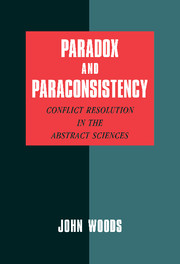8 - Normativity
Published online by Cambridge University Press: 05 June 2012
Summary
One should not pay lip-service to fallibilism: “To a philosopher there can be nothing which is absolutely self-evident” and then go on to state: “But in practice there are, of course, many things which can be called self-evident … each method of research presupposes certain results as self-evident.”
Imre Lakatos, Mathematics, Science and Epistemology, 1980.We said in the previous chapter that on the face of it, the various forms of Reconciliation are compatible with presumptions of the analytical intuitions methodology in the abstract sciences. Strictly speaking, one can defang an ugly pluralism about concept K by finding (or pleading) the relevant conceptual multiplicity, K1, …, Kn, each Ki of which might still qualify for how Ki-hood really is, as revealed by a conceptual analysis of Ki. Against this, however, is that, short of provably preexisting ambiguity that warring theorists just happen to miss, various of the instances of Reconciliation, especially those that figure in the received opinion dynamic, do not sit well with the realist presumptions of conceptual analysis taken as unearthers of antecedent conceptual fact. Rather than press this point, however, I shall attempt in this chapter to discredit all forms of the intuitions methodology. Doing so will disclose dialectical procedures of some importance, which we shall meet with in due course. One of these maneuvers I call the Can-Do Principle. Another is a degenerate variation of it, the Make-Do Principle.
- Type
- Chapter
- Information
- Paradox and ParaconsistencyConflict Resolution in the Abstract Sciences, pp. 277 - 326Publisher: Cambridge University PressPrint publication year: 2002



